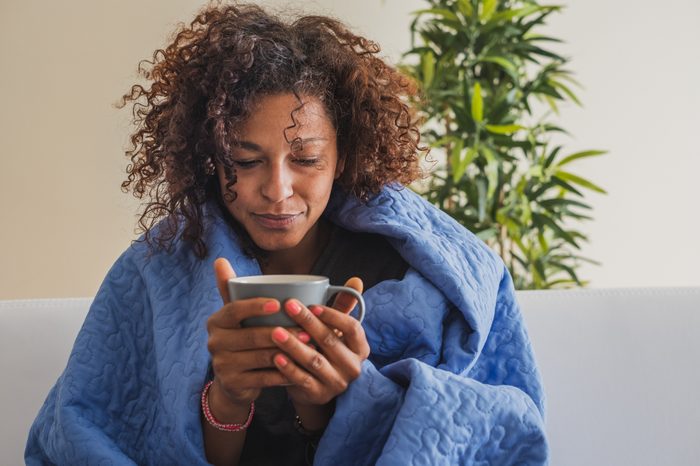
How to stop coronavirus from spreading at home
Canada now has more than 1,400 confirmed cases of Covid-19, the disease caused by the new coronavirus. Given glitches with the testing pipeline, many more people are probably infected and going to get sick—it’s just unclear as to how many. Some good news is most people with Covid-19 are thought to have mild symptoms, but that also means many of these people will be recovering at home.
Given current social-distancing guidelines—even some shelter-in-place recommendations—other people may be sharing that same enclosed space with people recovering from Covid-19. For example, if someone in a household of three has the infection, the other family members/roommates are at risk for exposure. Thus, it’s crucial to adopt a plan to protect other people in the home.
Health experts share their tips on how to stop Covid-19 from spreading in your home if someone is sick. But remember, that the virus can be contagious both before and after you have symptoms.
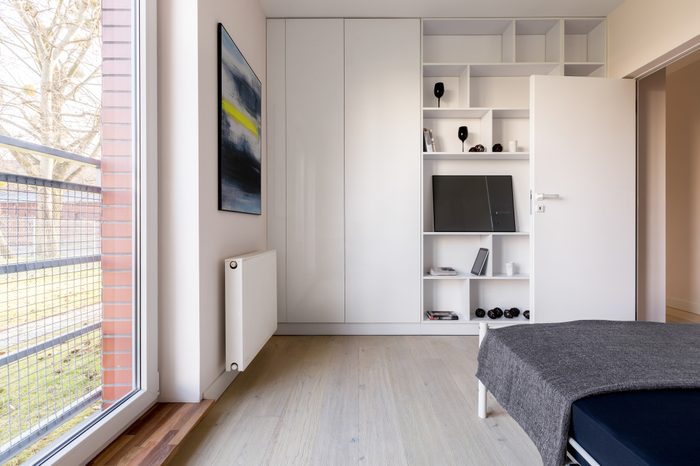
Set up a “quarantine zone”
Ideally, this should be a separate room. If that’s not possible, set up a quarantine zone at least six feet away from others in the household, recommends Aaron E. Glatt, MD, a spokesperson for the Infectious Disease Society of America. The Centers for Disease Control and Prevention (CDC) believes that the new coronavirus primarily spreads by respiratory droplets expelled when a person coughs or sneezes. Coughing is one of the most common symptoms of Covid-19 (fever is the most common), according to the World Health Organization. It’s believed that the respiratory droplets should not travel farther than six feet. However, the patient (and others in the household) should practice good hygiene, like sneezing or coughing into a tissue and then disposing of it, if possible. Here are tips from the CDC for people who are sick with coronavirus.
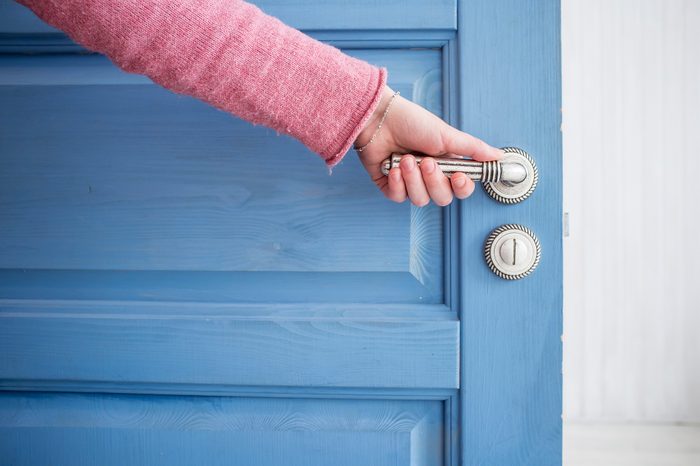
If possible, high-risk individuals might stay elsewhere
For people at high risk who are not yet infected, this could be at the home of a friend or family member who isn’t infected or even a hotel. “It’s obviously not ideal, but if you are high-risk, you want to avoid contact with those known to have the illness at all costs,” says Libby Richards, PhD, RN, associate professor at Purdue University School of Nursing in West Lafayette, Indiana. If a high-risk person without symptoms settles into another environment, they should practice extra precautions like social distancing, washing hands, and wiping counters just in case they are infected and don’t know it, says Richards. Elderly people are at higher risk for complications if they get Covid-19, as are people with chronic diseases like heart disease, lung disease and diabetes, says the CDC.
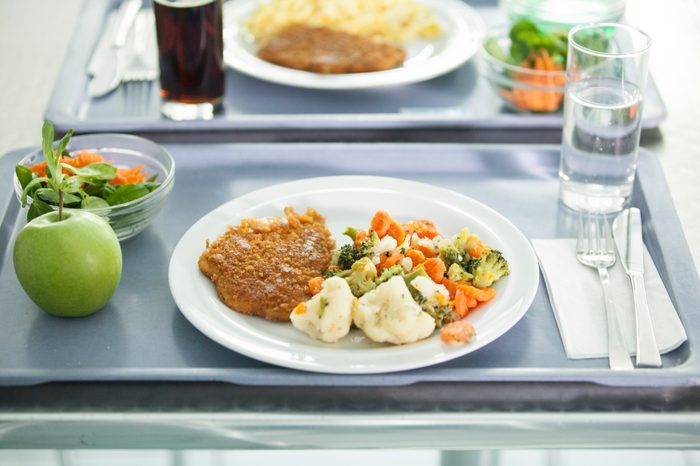
Don’t take food directly from someone else
This could mean food items (even if they’re wrapped) as well as plates or containers of food. People taking care of you should leave them at the door to the separate room, if you have one, or at the edge of the designated quarantine zone then back off, says Len Horovitz, MD, a pulmonary specialist with Lenox Hill Hospital in New York City. Though respiratory droplets seem to be the main way Covid-19 is spread, the CDC also believes the virus can live on surfaces. At this point, no one knows how long the virus can live on inanimate objects, but, says Dr. Glatt, “it can survive for a while so be careful.” If you need help eating, make sure you and the person helping out are wearing masks, he adds.
(Here are the hand sanitizers BH editors love.)
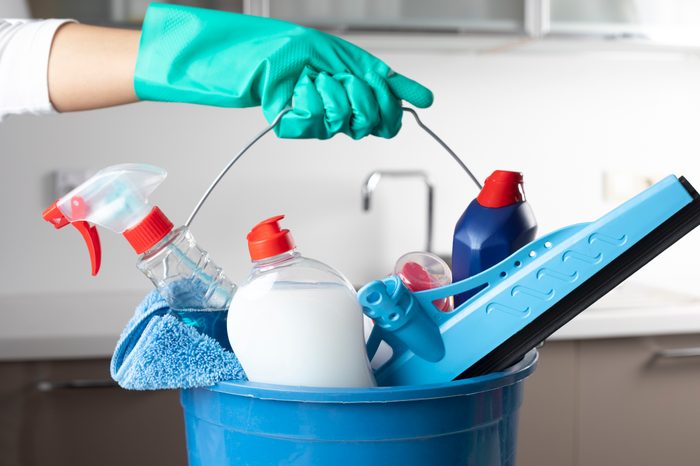
Clean surfaces
Make sure every surface you touch in or out of the quarantine zone is disinfected. Assume the virus can be infectious on surfaces for at least 24 hours, which is how long norovirus (the long-lasting germ that causes stomach bugs) lasts outside the body, says Dr. Horovitz. “The biggest areas are bathrooms and kitchens,” Dr. Horovitz adds. “Every surface that’s touched [should be] cleaned.” That includes cloth so throw towels and clothes into the wash. If you don’t have any ready-made products like Lysol wipes or spray, dilute two-thirds of a cup of bleach in a gallon of water. (Learn why Clorox bleach is so good at killing germs.) “It’s a perfectly good antimicrobial, says Dr. Horovitz. Truth is, no one actually knows how long the virus can last on surfaces which is just another argument for thorough cleaning. The CDC has tips for cleaning and disinfecting households with a case or cases of Covid-19. Also, here are the best household products that kill coronavirus.
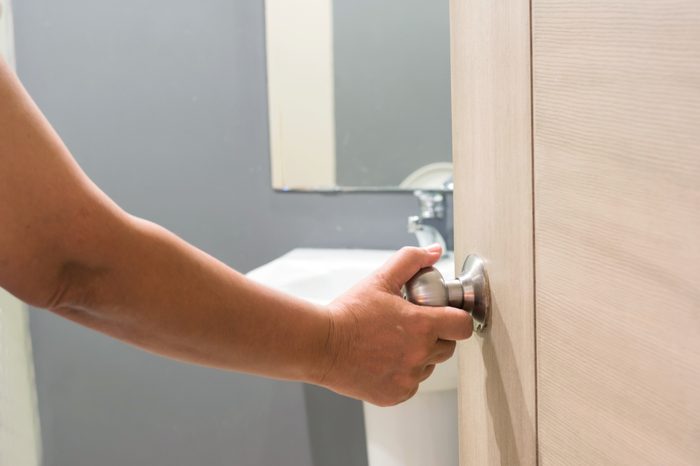
Use a separate bathroom, if possible
If that’s not possible, you should take great care and clean the space after each visit. That’s because evidence suggests the virus may also spread through fecal matter. A February 2020 study publishing in the journal Gastroenterology found the infectious Covid-19 virus in the stool of 53.4 percent of 73 hospitalized Covid-19 patients. The researchers concluded that diarrhea is a more common symptom of the virus than previously thought. That means you could contract coronavirus if you come into contact with fecal matter and then touch your mouth. “The virus can be found in fecal material so try very hard to clean [the bathroom],” says Dr. Glatt. “If a patient needs help toileting, both patient and [caregiver] should wear a mask,” adds.
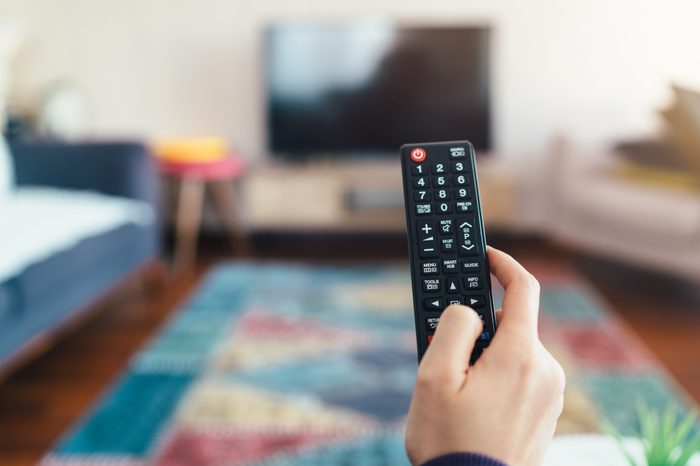
Have designated objects for the patient
“The sick person should get a designated object, like a TV remote or phone that no one else uses,” says Dr. Richards. Also, confine yourself to only one plate or bowl used consistently as well as one set of silverware. These should be washed individually or sanitized in the dishwasher, she adds. Disposable paper products can also work. Although coronavirus is not the flu, this is flu season as well so some tips on preventing infection with influenza may be in order here as well. The New York State Department of Health recommends using paper towels or towels that can be washed after every use. And avoid sharing bedding, the CDC advises. Don’t play card games or board games with anyone else, says Dr. Horovitz.
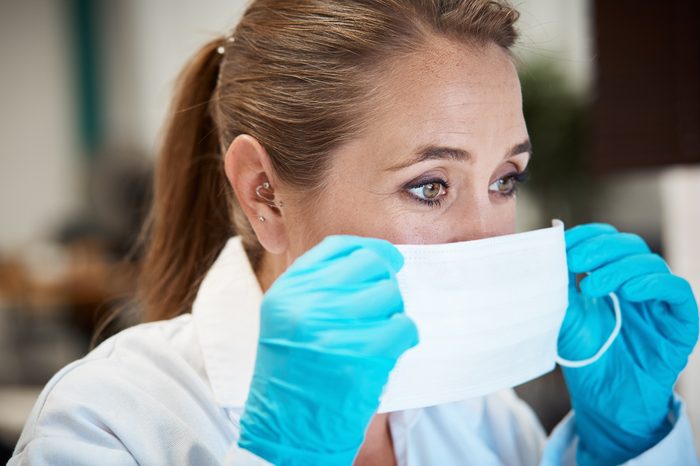
Make sure you have one designated caregiver
This is good advice during flu season and it’s good advice now. That caregiver should wear a mask and gloves if available and hand washing is a must, says Dr. Richards. Instruct everyone in the household to practice strict infection-control measures whether or not they come near you. That means washing your hands with soap and water for at least 20 seconds. Hand sanitizer will do in a pinch but most homes in the U.S. have running water. Household members should also avoid touching their face. You may also want to have a designated shopper (not you) to minimize bringing any more virus into the house, says Dr. Richards.

Limit contact with pets and animals
Heartbreaking as it may be, this is not the time to be cuddling with pets or other animals. The CDC recommends taking the same precautions with animals as you would with people. This has as much to do with what we don’t know as what we do know. There are no reports yet of animals with Covid-19 symptoms or of animals being able to spread the virus. The American Medical Veterinary Association recommends having someone else in the household take care of your pet while you are sick. If you have a service dog you have to care for and interact with, wear a face mask and wash your hands before and after contact.
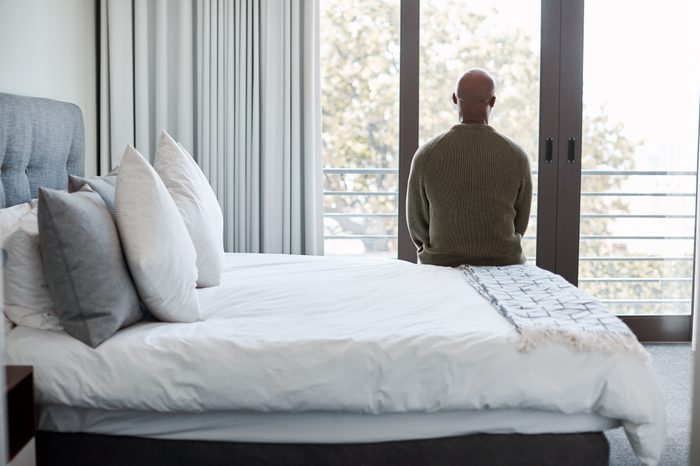
Think beyond the borders of your home
If you’re sick, the people closest in physical proximity are most at risk, but there’s still the rest of the wide world out there. While this may seem obvious, you still need to protect people beyond the borders of your home. This is not the time to be having dinner parties, or playing card games or board games, says Dr. Horovitz. While you’re home, you should be monitoring your symptoms. If they seem to worsen, call a hotline or your doctor but don’t just show up. A lot of healthcare practices are now offering telemedicine. When in doubt, call the coronavirus hotline at 1-833-784-4397.
Next learn how doctors protect themselves from coronavirus.
